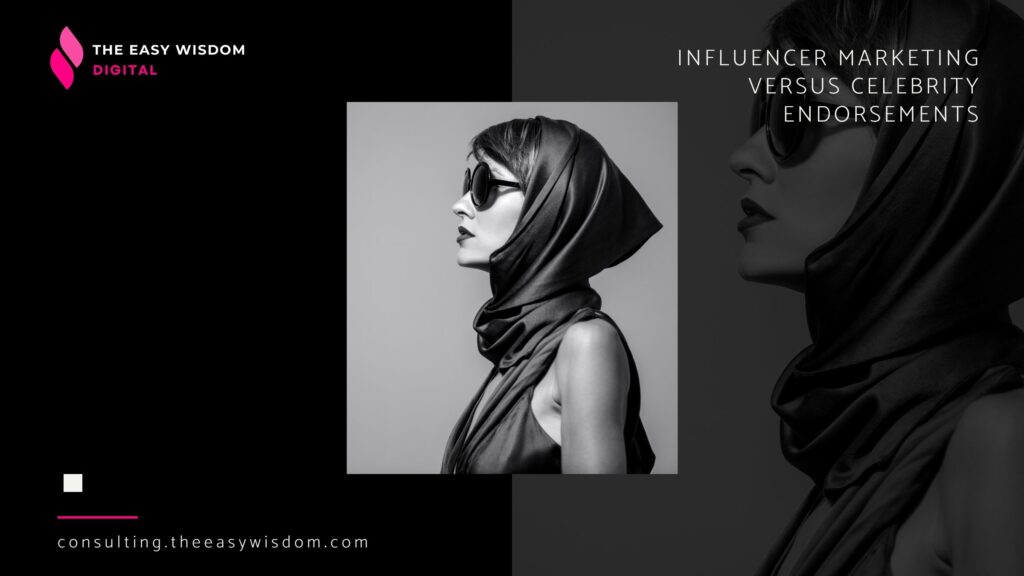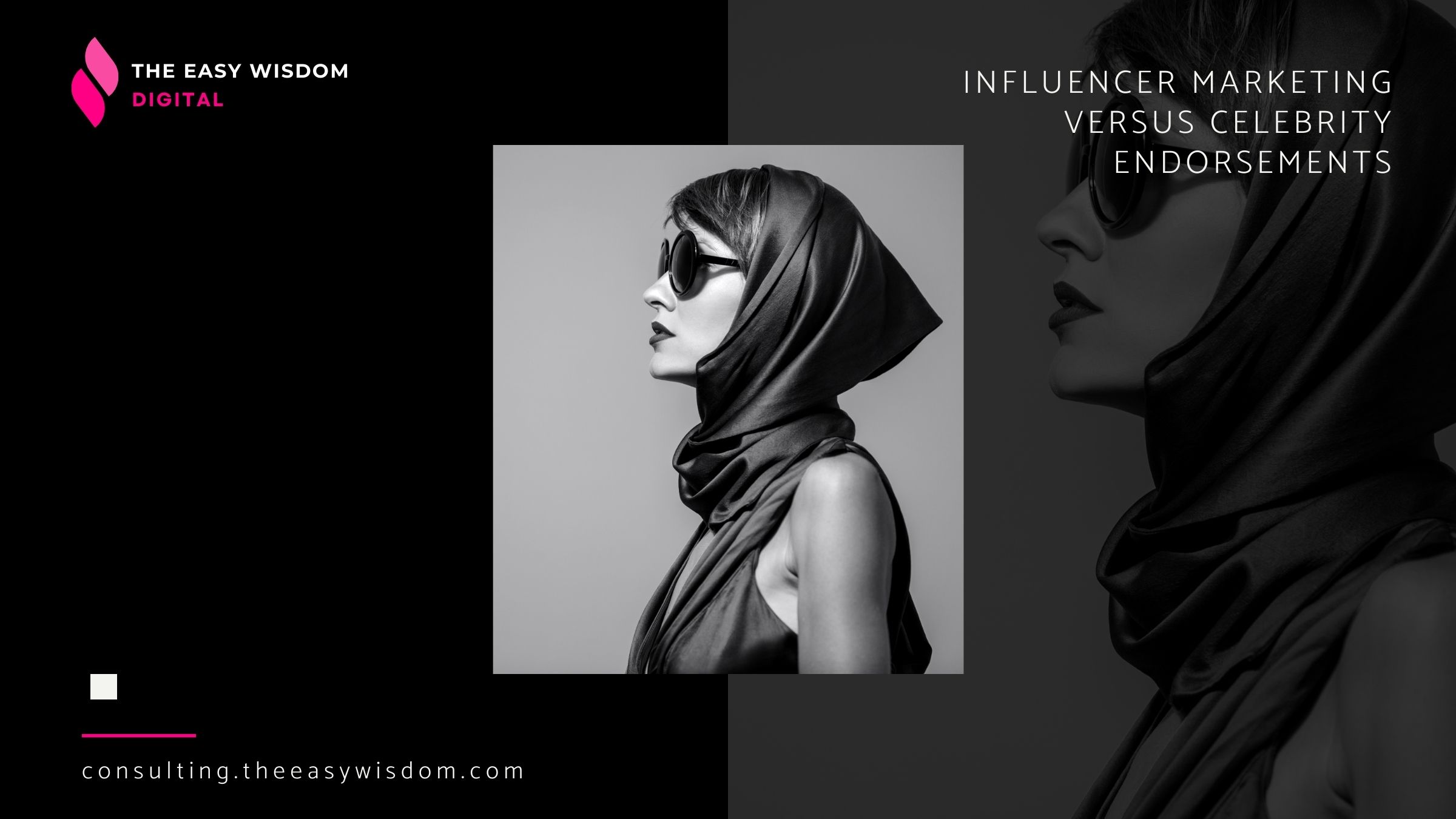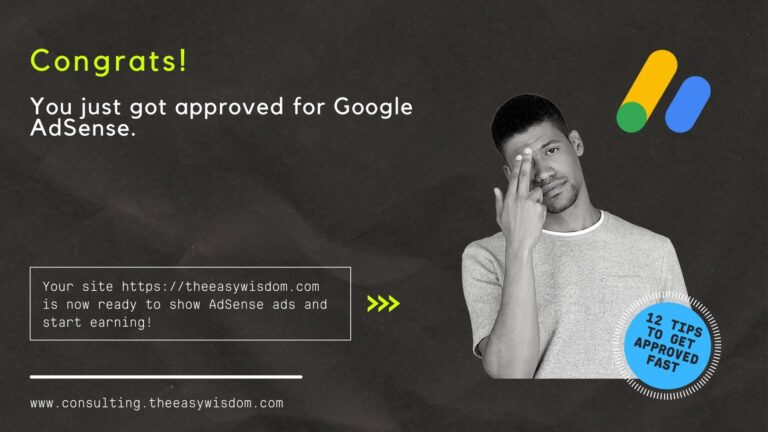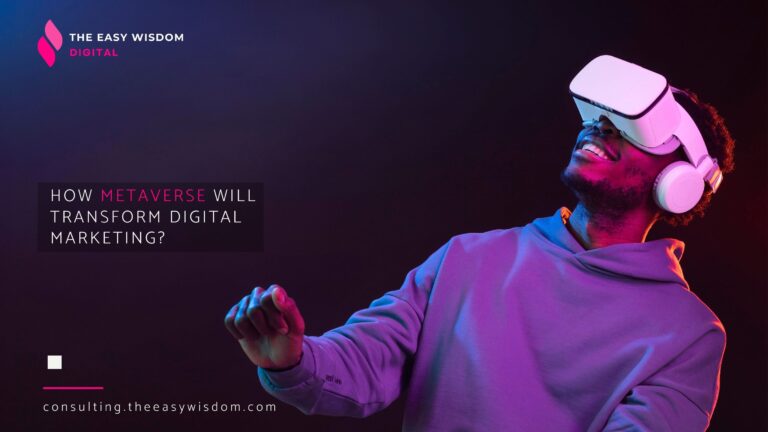Influencer marketing is now one of the most essential and mainstream forms of online marketing. All digital marketers are using the power of influencer marketing to increase their efforts of the marketing campaigns in terms of reach and conversions. It has been a buzzword, and its importance has only increased with the advent of social media. Celebrity endorsements, on the other hand, have always been an effective method of catching public attention, but influencer marketing has started to emerge as an alternative way to build brand awareness, reputation and trust.
Many people do not really understand influencer marketing and how it differs from celebrity endorsements. And they end up using both the words interchangeably. Brand awareness and promotions by known celebrities have been there ever since. Every brand had a celebrity face to endorse them. But this whole ideology of celebrity endorsement has been transformed by the advent of social media. Now, influencer marketing has become the sensation of the digital world. While celebrity endorsement has its own importance, influencer marketing has already taken over. Knowing which one works for a brand comes with a lot of experience, but one thing is sure that no one can now ignore the power of influencer marketing. So which one is better than the other? Let us find out!
What is celebrity endorsement?
Celebrity endorsement is a kind of marketing that leverages the fame of celebrities to promote a brand, its products and services. The celebrities cut across segments, sectors and industries. And, therefore, they command a wide range of influence and yield a huge reach. Celebrity endorsements create high brand recall. People remember your brand due to the celebrity who has endorsed your product or services.
What is influencer marketing?
Influencer marketing is like democracy: it is for the people, by the people, of the people. Most of the influencers we see today are common people.
Influencer marketing is a type of social media marketing that uses social media influencers, expert in their niche and subject of study. These influencers command a certain level of fan following and influence their buying behaviour. These influencers drive a niche audience and serve as social proof to potential customers by becoming key opinion leader (KOL). To drive a successful influencer marketing campaign, the brands must ensure that their niche resonates with the niche of the influencers they are collaborating with.
Difference between influencer marketing and celebrity endorsements
1. Subject matter expertise
Influencers are subject matter experts while celebrities are not necessarily experts
Social media influencers create content around the niche they are passionate about. They share the content of their daily lives that revolves around the niche they specialise in. These influencers are known for the niche they talk about, and it binds their followers to them. Whenever they review a particular service or product, it influences their fans, who may then act and consume a product accordingly. The influence they command can be as broad as being a beauty influencer or as narrow as being an organic beauty influencer. Their opinions are valued and well received by their audience because of the knowledge they have of the niche.
Celebrity endorsements, on the other hand, work completely opposite. For celebrities, it is not essential to be an expert in a niche of the brand they are endorsing. Celebrities are loved and respected for their work in general, and influencers are respected for their content. A celebrity endorsing a beauty brand need not be a skin expert. All they need is to be known for their work and be popular.
Celebrities command a huge fan following, and therefore, are a great option for brand awareness campaigns. Influencers, on the other hand, have a relatively lesser fan following. But they are a great option for both brand awareness campaigns and conversion campaigns in their own niche.
2. No. of Collaborations
Influencers endorse and collaborate with various brands whereas celebrities are the face of the brands
Social media influencers often collaborate with various brands and endorse their products and services on their social media. They often engage with the brands on a short to medium terms basis. Some influencers review and promote multiple brands by limiting to one sponsored post, story or reel. Whereas others collaborate for longer durations. It creates a win-win situation for both the brand being reviewed and the influencer reviewing it. Brand collaborations help the influencers earn credibility, build up their social media portfolio and help monetize their efforts. Brands are benefited due to increased brand awareness, engagements and conversions.
Celebrity endorsements, on the other hand, are long term engagements. Celebrities endorse a brand for a long time. They often sign a long-term and exclusive contract that bars them from promoting or endorsing any other competitor brand. The celebrities represent the brand values and are the face of the brands.
3. Scripting of the content
Influencers are free to use their own creativity while celebrities only go by the script
Social media influencers are known for their creativity and unique style of content they create. Therefore, they are free to use their own creativity, style, theme and appeal to drive engagement. In some cases, 90% of the content is their original work. The rest, 10% of it comes from the brand in question. Sometimes, 100% of their content is their original work. Generally, the content is the copyright and propriety content of the influencers. But influencers give usage and reproduction rights to the brands for promotions.
In celebrity endorsements, the content promoted by celebrities is created and owned by the brands. The brand controls the script, production and distribution of the ads, and it is their own copyrighted content. The brands own the content and distribute as per their media plan.
4. Community
Influencers create a community to drive engagement while celebrities do it as a job
Influencers have a huge fan following on social media platforms where they create and share relevant, engaging, meaningful and relatable content. People love them for their subject matter expertise and their content. People know who they are, where they come from, the values they represent. People follow them as they can relate to them. The fact that these influencers are approachable, relatable and perceived as human beings drive more engagements. The influencers often go live and respond to the comments to interact with their fans. These little gestures of answering their questions, replying to messages and comments, imbibing their suggestions, creating content that they want to see, and making the fans part of their daily life help influencers create a small community of their own.
Celebrities are known for the full-time jobs they do. And their full-time work is different from just endorsing a brand. Brand endorsement is just one of the jobs they do, and it is an additional source of income for them. Celebrities are not as personally connected and invested with the fans as the influencers. It is not feasible for them to connect with their fans daily on social media. But they interact with their fans on a broader level as a part of their job as artists, players, actors, dancers, etc.
5. Collaboration arrangements
Influencers collaborate on various arrangements from barter to hard cash, however, celebrities primarily work on a payment basis.
Influencers work on various arrangements ranging from barter collaborations to hard cash. Sometimes they also work on a mixed-arrangement where they get both the products to endorse and associate payments. At other times influencers also work on a commission basis and act as an affiliate for the brand they are collaborating with. These influencers get coupon codes, and the sales are tracked as per the number of times a particular coupon code has been used. The influencers then get paid accordingly. It is called performance-driven influencer marketing.
While celebrities often work on endorsements as a part of their jobs and get paid for the same. Some celebrities might endorse a brand for free when it is for a cause, volunteering and as a part of the corporate social responsibility (CSR) initiative of a brand.
6. The metrics
Influencer marketing is for engagements. Celebrity endorsements are for reach.
When the traditional media dominated the marketing space, billboards, hoarding, TV adverts, and radio jingles were a few ways to reach out to the masses. These were primarily brand awareness campaigns, and the associated metric was ‘reach’. But now, with the proliferation of digital media, the influencers are more reachable to the audience. And therefore, like reach, the engagement metric is equally given importance. Brands have moved beyond just the reach metric and now assess the effectiveness of marketing campaigns in terms of likes, shares, comments, retweets, reshares to name a few. Brands, therefore, are leveraging on influencers with a high engagement rate rather than only the follower count.
Another benefit of Influencer marketing is that it can also help the brands to generate authoritative links or inbound links with an additional benefit of increasing their user engagement signals, traffic, and visibility. Influencer marketing thus complements the brands’ SEO strategy as well.
Celebrity endorsement, on the other hand, focuses on reach metrics. When the brands want to reach the masses and drive brand awareness, they deploy celebrity endorsements. Social media allows you to reach a large number of people too, but nothing as compared to traditional media. And celebrities are also using social media as a part of celebrity endorsement campaigns to further their reach.
7. Budget
Brands can drive good engagement on a low budget with influencer marketing. Celebrity marketing is an expensive proposition but yields better reach.
Influencer marketing is one of the most efficacious methods to grow your company’s reach and increase your credibility. Brands do not need a large-scale budget for influencer marketing. They can drive good engagement with influencer marketing on even low budgets. And hence, it becomes an excellent choice for small businesses too. Startups and brands that are low on budget, time and resources can easily leverage influencer marketing. It is within their reach and yields faster results in terms of both awareness and conversions.
Small businesses can use influencer marketing effectively by being low on budget by
– Setting an appropriate budget.
– Keeping the team small.
– Investing enough time.
– Finding the right influencer who resonate well with their brand.
– Choosing a compensation model like cost per sale, cost per click, cost per engagement, or cost per post, etc.
– Effectively leveraging on micro and nano influencers.
All kinds of businesses can explore influencer marketing, but not all brands can afford celebrity endorsements.
8. Associate risks
The risks associated with influencer marketing are relatively lesser than with celebrity endorsements.
Celebrity endorsements help in positioning the brand image. When a celebrity endorses a brand, the person lends credibility and popularity to the brand in question. It means that the personality of the celebrity reflects the personality of the brand. The perception of the brand is formed based on the celebrity who endorses it. But there is always a risk associated with celebrity endorsements. When the celebrity comes under a controversy or experiences a downfall in his career, the brand image may also get negatively affected. The vice versa also holds true.
However, there is no such associated risk with influencer marketing. The brands work with many influencers and on a short term basis. These influencers help the audience form an opinion about the brand, but they are not the face of the brand. However, there are other associated risks with influencer marketing, such as the fake social presence or negative reviews by the influencers if the products do not work. For example, one of my influencer friends collaborated with a cosmetic company and while shooting the promotional content, his skin got allergic to the product. He negatively reviewed the product. The other risk associated is that the influencer campaign doesn’t perform as expected, like a failed product launch. I have also seen many influencers who collaborate on barter deals but never post any content. Some influencers also delete the sponsored content, 24 hours to seven days after it goes live. It is not only an undesirable behaviour but also impacts the campaign legacy. For example, sometimes brands try to build up and organize the paid content under a specific hashtag like #summercampaign. So, the brand wants all the influencers posts to be listed under #summercampaig to drive engagement and inspire customers to use this hashtag. Deleting the sponsored content impedes the brand’s campaign efforts.
9. The Media channels
Celebrity endorsements utilize both traditional and digital media. Influencer marketing primarily utilizes social media platforms.
Social media influencers, create and share content on owned media, like social media platforms such as Instagram, Snapchat, YouTube, Facebook, Tik-Tok to name a few. They have their audience interacting and engaging on these platforms. Therefore, they use social media channels to build their own community and become KOLs (key opinion leaders) for the niche they operate in.
Celebrity marketing, on the other hand, makes use of both traditional and online channels. Celebrity endorsements often use traditional media like TV, radio, print media, hoardings, bus branding, in-cinema advertising and also the digital channels like social media, OTT platforms, and other forms of online advertising.
Celebrity endorsements have now evolved as a marketing strategy. The evolution and growth of digital and social media have brought better alternatives to celebrity endorsements. Celebrity endorsements still exist, both on traditional and digital media. But influencer marketing has taken over big time because of a seismic shift in the way people consume content. People are now hungry for more relatable, meaningful and relevant content that engages and entertains them. It is what influencers are exactly doing. They create engaging content by weaving a story around their content that drives engagement.
Celebrity endorsements can give brands a good amount of attention and buzz. Influencer marketing gives brands a good amount of engagement and conversions. Regardless of what medium you choose for your marketing campaigns, do not forget to keep customers at the heart of your decisions.
Suggested Reading: How to get approved for Google AdSense: 12 Tips!
PS: Check our global digital publisher:The Easy Wisdom Media!





2 replies on “What is Influencer Marketing- How does it differ from Celebrity Endorsements?”
Good comparison
Thanks, Eeshita!